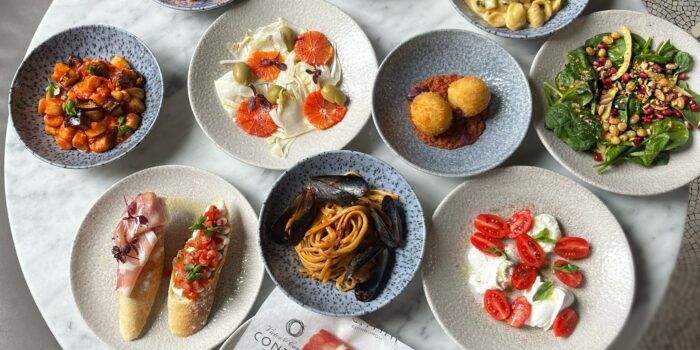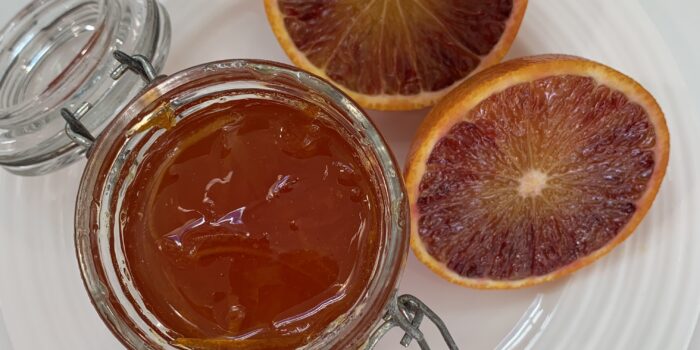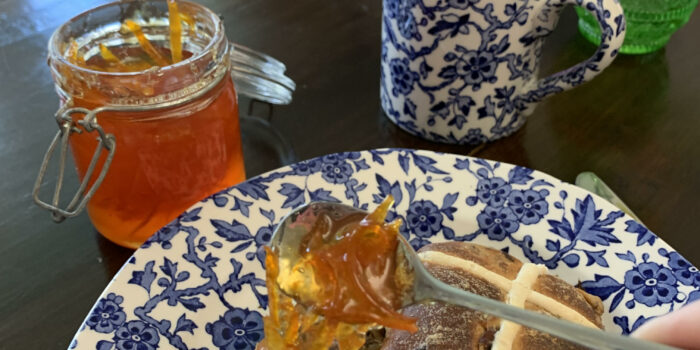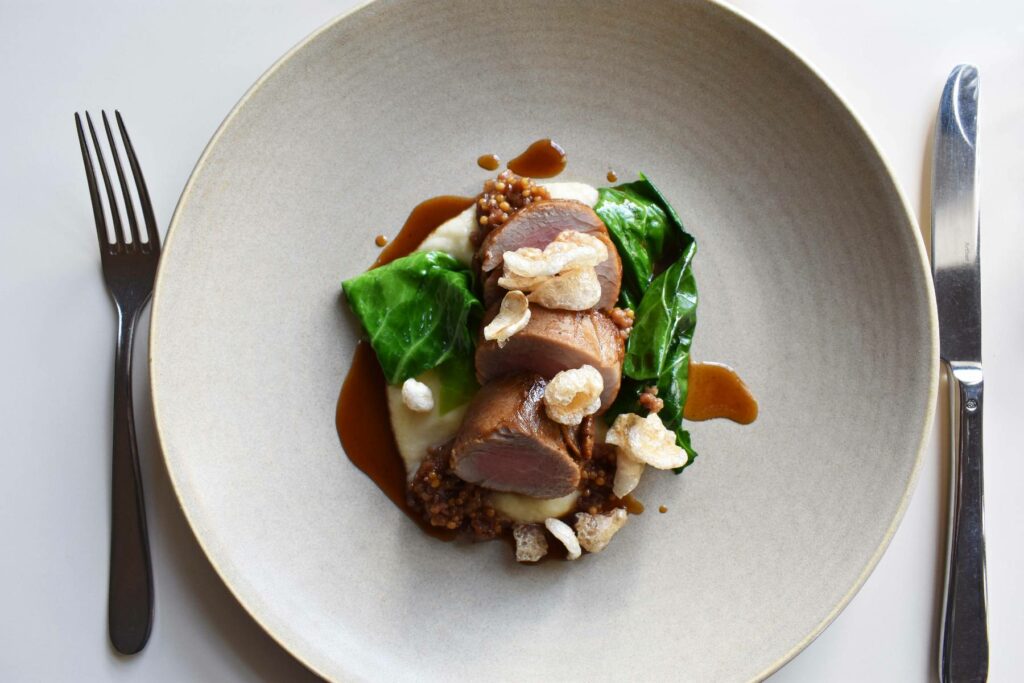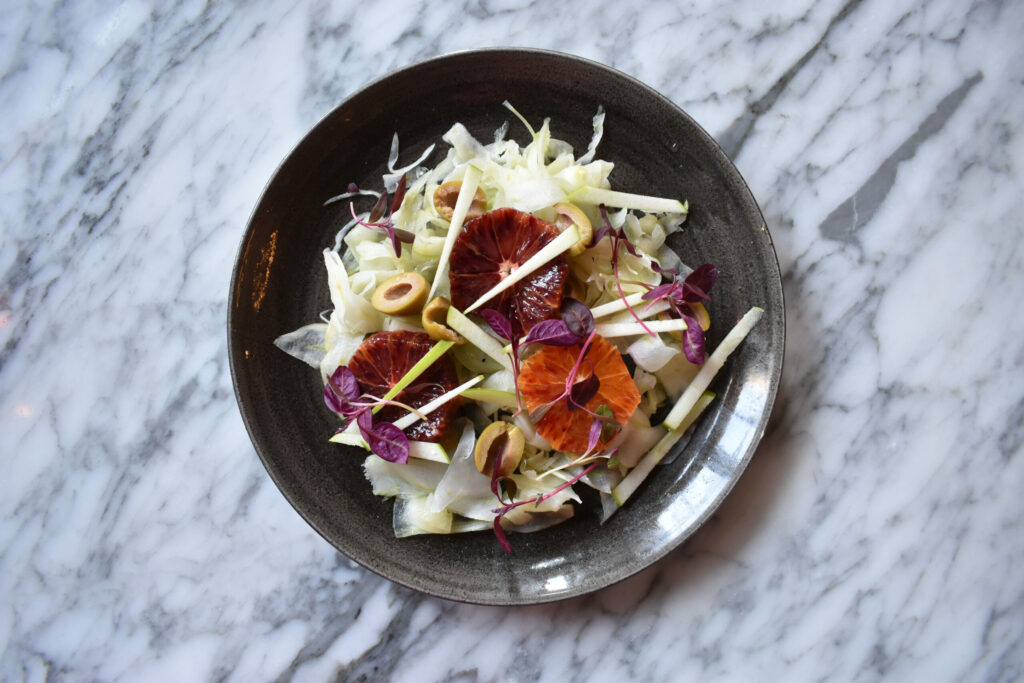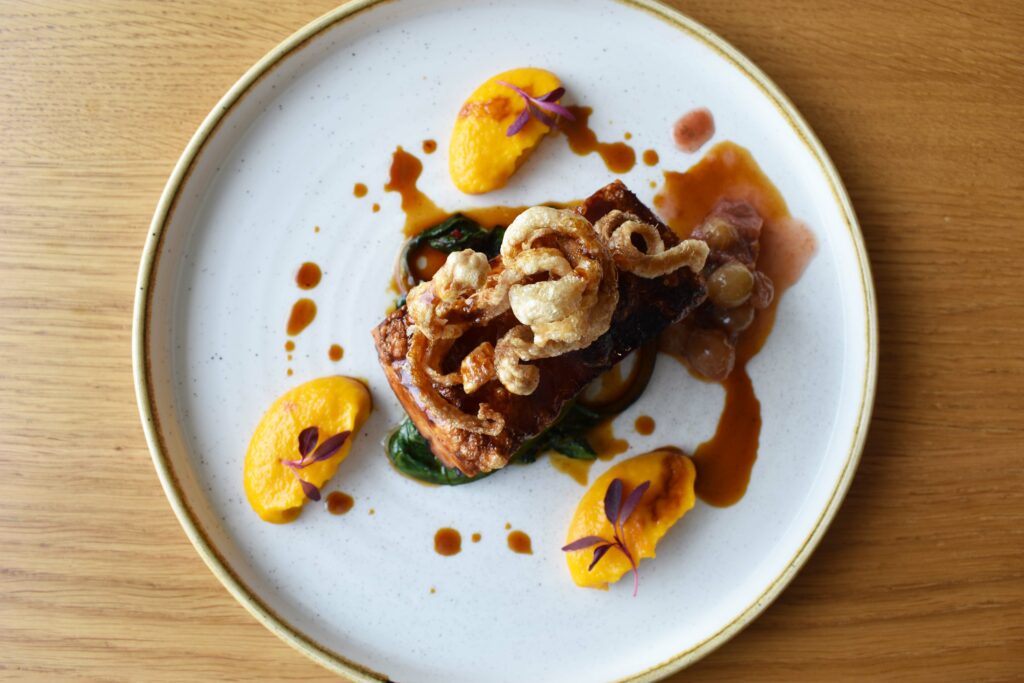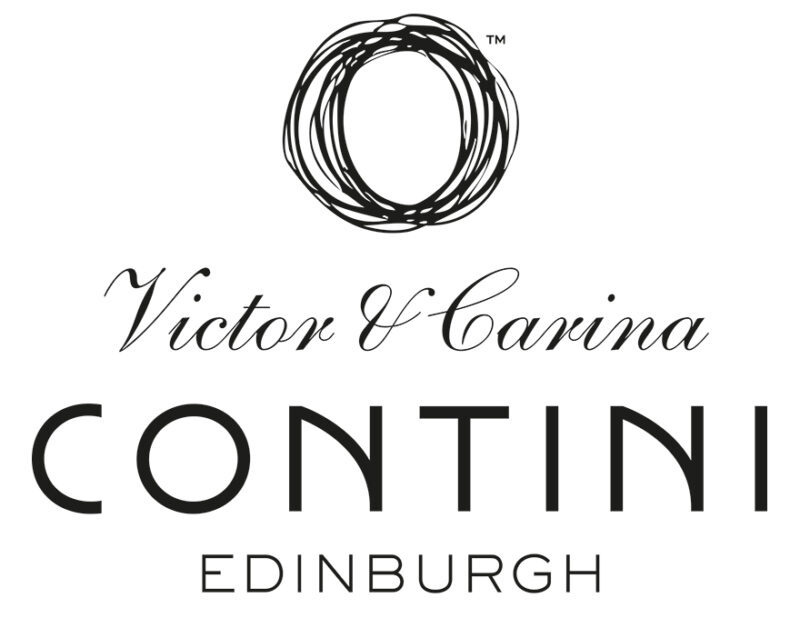As you may know, Carina was flattered to be asked to talk in the Piccolo tent at the Edinburgh Food Festival in George Square Gardens at the start of the month. For those of you who missed it, here is some of the copy from the talk. It’s half a book so grab a cup of tea, sit down and (hopefully) enjoy what is a fascinating family story.
An Immigrant’s journey 100 years later
Most of you will know that I’m married to Victor and we’re both proud second generation Italian Scots. We’re from an immigrant’s family that settled in Scotland at the turn of the last century but descends from tiny villages in the mountains between Rome and Naples.
Victor is also an Italian Scot but we’re keeping this talk to my story as we’ve not got all day…;-)
In a village 500 years ago……
The church records in our village in Picinisco in Lazio in Italy show that my family lived in the same house in a tiny hamlet for at least 500 years. If the records went back any further chances are we had lived there for thousands of years.
My grandmother, my Nonna, was actually born in London in 1895. Her family were one of the first Italian families to come to Britain in the late 1880’s. They settled in Clerkenwell where my great grandfather helped made accordions and sold ice cream on the streets. Nonna had a British passport but pre 1905 there were no immigration controls so it didn’t mean much at the time.
However foreseeing unrest and unsure what side of the war the Italians were going to settle on, the family went back to Italy around 1913.
It all started with two first cousins

Nonna was about 18 or 19 when she arrived back in Italy. She must have been almost exotic with her Cockney accent and her clothes must have been very different coming from a city to her family back in the home village up in the mountains. Miraculously she fell in love with a very handsome man 5 years her senior. It turned out it was her cousin. Love at first sight.
Now what would they have been eating in 1914 in Picinisco up in the mountains of Italy?
The family were contadini – of the land. They owned their own land and farmed it. They had sheep and goats and made cheese. Communal baking oven in the hamlet where bread was made weekly. They used wheat but would have eaten a lot of corn meal – polenta. They kept pigs and made salami, sausages, prosciutto. They grew tomatoes, beans, courgettes, potatoes, greens, and ate figs, apples, grapes, apricots, mulberries. They would have dried beans and preserved fruits and vegetables to keep them through the winter. They made their own wine and picked wild herbs herbs rocket, dandelion, nettles, fennel and coriander. They also grew olives to use olive oil or the lard from the pigs for cooking.
They had a very healthy diet. Although there was no fresh fish they would have traded their cheese and cured meats for salted preserved fish like baccala.
Statistics show that the Italian diet at the time was largely vegetarian. The average meat consumption per person at the turn of the 19 century was 14 – 15 kilo in Italy. In Britain this was probably about 30 – 40 kilos, so double!
World War 1 was to change the world for everyone. On 23 May 1915 Italy declared war on Austria / Hungary but not on Germany. They had signed the Treaty of London on 26th April 1915 with the Allies hoping to get foreign territories in Africa. Remember Italy had only unified in 1871 so was a very young country and felt they needed to catch up with the colonialisation that the other European powers had managed to amass over the previous few centuries.
Italy didn’t join until the war until 1917 but the war around them had dramatically affected their food supplies. The price of wheat had been capped as early as 1915 allowing some farmers to make a fortune but it was crippling for the rural population.
Italian Soldier had to survive on 3,067 calories per day and this wasn’t increased to 3580 until 1918. This was the lowest of any European soldier. The British soldiers were given 4,400 calories per day. There was a lot of unrest both on the Italian front and at home. The government opened the OFFICE FOR THE PROPAGANDA OF THE LIMITATION OF CONSUMPTION. This was a massive campaign to convince the less educated that less food was healthier and interestingly that margarine was better than butter, and there was no difference between olive oil and seed oils.
The women started to protest! Small farms were suffering the most as the woman couldn’t manage to cultivate their land as their help, their husbands were at war. At that time over 2.5 million families owned less than 1 hectare of land. The government requisitioned livestock and produce from these smaller farmers. The large landowners and farmers were benefiting from a monopoly on pricing
By the time the war was over it was clear to my grandparents it was time to go.
Less than 10 years later Mussolini would be at the height of his power and changes to land ownership resulted in the division of land equally amongst all siblings which made it even more impossible for families to live of the land and the next exodus of Italian migration took place.
There is a wonderful book by David Gilmour, The Pursuit of Italy 2011 unification of Italy 150th anniversary, that covers this in far more detail. It’s very much worth a read.
A letter arrived from a village far far away in 1919 and the story moves from Italy to Scotland

Almost unbelievably Victor’s grandfather was a dear friend of my grandfather. He had left Italy in 1914 before the start of the war and had settled in the Grassmarket and later opened a shop in Easter Road. He was an active member of the Italian community and was keen to bring his friends to Scotland. He wrote to my grandfather and told him to come to Scotland. He wrote: “the people are lovely, the food is good and the weather isn’t too bad!”
By 1905 the Aliens Acts had been introduced in Britain. This was a real change in the law. Although there were no borders control immigrants now had to show he could support his family.
My nonno (grandfather) left Italy without his family in 1919. We see many refugees and migrants in the same situation. The man leaves first, settles and when it’s safe calls for his family.
About 1920/1 my grandmother, father in her arms and his older sister arrived in Scotland. They had walked most of the way. My grandmother’s shoes were called ciocia they were like Dutch clogs, carved from wood, oh my goodness can you image the blisters!
To give a little context the Model t ford had just been invented and although by 1920 1 million cars had been sold in America, in Britain they were still very much a luxury.
In Edinburgh the first Tram was completed by 1905 but was not electrified until June 1922 and only went as far from the city as Portobello. My Grandparents ended up in Cockenzie where the nearest train station was Prestonpans so the final leg of the journey was the long walk from Prestonpans to the harbour at Cockenzie.
The whole journey must have been hugely scary but so exciting. The changes in the built environment from their tiny hamlet up in the mountains to the hustle and bustle of the the cities and the final destination of this small but busy fishing village perched right on the coastline. If you close your eyes you can image the cool breeze and the crisp salty smell of the sea compared to the floral fragrant mountain air. They loved it. The Cockenzie Cafe became their new home. It was my home too for 23 years of my life until I married Victor.
It was love at first bite…..

By 1915 there were 20,000 Italians in Britain. They were skilled artisans, working as plasterers, the repaired and made industrial instruments, organ grinders, in Sheffield they made cutlery, they worked in the shipbuilders and in the coal mines all around Wales and England. By the time they got to Scotland they were making ice cream, frying fish and chips and selling produce imported from Italy.
With the change in country came a change in diet. Yes they could get their hands on some dried pasta scutta and olive oil usually from the local chemist where it was used for medicinal purposes rather than culinary use but their diet changed with the ingredients that were around them. Fish for starters was a huge for my grandparents. They loved prawns (langoustine) and lobster something that I’ve inherited too. Porridge was a staple. But always with a bit of double cream and salt. Loads of big pots of soup but that’s as Italian as it is Scottish. And the biggest love I hate to say was whisky! Yes both my grandmother in particular and my father loved a wee nip. Well loved several and would start the day with a wee dram to get them going. Goodness knows where they got that habit from!
My family had settled in a very homely village beside the sea nestled between two harbours. It was exhilarating. The hills were a walk away. There was a huge sense of community that three generations later is still strong. We’re very proud of all the time our family spend in this tiny village. My cousins and brother still live there. The good life indeed!
My Nonna spoke English with a London accent so she was accepted early on. My Nonno was loved by all. A very gentle man. Nonna was the battleaxe apparently. Nothing new there I hear you say. Don’t worry I know everyone loves Victor just that little bit more than me, but me too! They worked hard. The created a hub for the community. They were the Starbucks cafe of their day. Cafe culture across every Scottish town was nurtured by these Italian ice cream cafes. There was a fire, sitting room, you could have a cup of tea and sit all day. I love when customers come in even today and tell me stories of when they were young or when their parents dated in the back of the fish and chip shop. Happy times.
Happy and settled in 1938
Yes times were very happy. This is a wonderful picture and the last we have before the outbreak of the second world war of my father and his family together. I love looking at their clothes, my Nonna’s shoes have changed for sure and my Nonno looks very much the settled gentlemen proud of his family and proud to have created a safe new life for his family.
Nonna was the cook, just like my mother and now me have inherited this job in the family business.
Again if you can image when my grandparents arrived in the early 1920’s there was no wide use of refrigeration. My father as a teenager after school would deliver blocks of ice all around Edinburgh to other Italians who had ice cream shops and sold food. The house a grew up in that my parents had inherited from my grandmother had a huge ice cellar under ground where the ice was stored. There was also a well. Can you imagine growing up in a house that had a well in the cellar. The house had been part of the Fishermen’s association and over 30 families had lived their. Over the years my grandmother had bought tiny parts of the building that house the shop on the ground floor. Originally they slept at the back of the shop but as they worked harder and did better life became more comfortable. The building at the back of the shop was very very derelict. I’m sure it’s part of the reason I trained as a surveyor as I have always been passionate about the history of buildings. Our building was easily 400 years old and the walls were over 1 meter thick, keeping the harsh winter winds and sea out. There was no glam but there was lots of adventure growing up in Cockenzie.
Before refrigeration was invented my grandmother made the ice cream by hand. The ice was broken up and packed around a metal bowl and the custard that had been boiled and cooled previously was beaten in the bowl with a wooden spoon until it was set and then it was served. It was kept cold in a metal box that was framed out with inserts of solid metal that had been filed with salt water. They weighed a ton and you’re fingers stuck to them for hours if you let them settle on them for too long. When I was little and we had the ice cream kiosks that went down the coast selling cones, I remember using these same inserts to pack the ice cream in the van. Technology has changed so much. I really can’t believe how fast and how much has changed even from the 1970’s.
But in the late 1930’s my grandparents and father were doing well. It was long days and longs nights. Day offs were only in the winter but they knew what a good time was. They loved treats. Believe it or not they would go to Gleneagles for Lunch, they had Afternoon Tea in the Caley and , enjoyed the H’Orderve Trolley in the North British. Those memories and stories have been worth every penny as they’ve been shared to their third generation now and hopefully my children will tell the stories to their children. By the way the treats were all around food. There was no fancy clothes and fancy jewelry. Food was the investment every time. You just have to look at their tummies.
Tragedy
The happy times were to go and they went very quickly and hugely tragically.
Unfortunately in 1940 Italy chose the wrong side to align with. Unlike siding with the Allies as they did in the First World War. Mussolini got his way in 1940 and chose to join Hitler in June 1940.
Overnight the Italians in Britain went from being Aliens under the Aliens Act to Enemy Aliens.
The British government calculated that there were about 80,000 enemy aliens in Britain who could be spies or willing to assist Britain’s enemies in the event of an invasion.
In 1940 there were about 19,000 Italians in Britain when Italy joined Nazi. Churchill famously said collar the lot. Many of these people had lived in Britain for decades. But war is war. Men were taken from their homes overnight.
These Italians born in Italy were sent to camps including my father who was sent to The Isle of Man. 7000 internees were deported to Canada and Australia. My father had been separated from his father who was sent with his dear friend Alfonso, Victor’s Grandfather and they boarded the Arandora Star to be deported to Canada. This was a luxury cruise ship that had been requisitioned and converted to a troop ship. It was part of the Blue Star line, the same luxury liner company as the Titanic.
On 2 July 1940, the German U boat 47 torpedoed the Arandora Star in the Irish sea with 714 lives lost. 446 were British Italians. This was one of the largest civilian losses at sea during the war. Both friends, my grandfather and victor’s grandfather lost their lives on that day.
Public opinion changed and before the end of the war most of the men who had been interned or deported were allowed to go home.
This did scar my father but he understood why it had happened and he accepted it. He loved Scotland and he loved being British. So immediately on returning back to Cockenzie he applied for British citizenship and relinquished his Italian passport.
Most importantly he came back and chose to only speak English with his family and this is part of the reason my Italian is so shocking. They had made a choice to live here so they had to be as big a part of the community as possible. Speaking English was the first step.
Happy Days 1954

Happy Days would soon return and in 1954 my father married Gertrude, an Scot with an Italian mother with an Irish father. What a crazy combination. They took over the family business from my grandmother selling ice cream, made with British sugar and milk delivered from the dairy less than 1 mile up the road. They sold fish and chips with super fresh fish from the boats in the harbour or laterally from the harbour in Eyemouth. The potatoes were from Patons up the road and the fat for frying was from Ingles pig farm up the road.
Local food. Slow Food. This is the foundations of what we’re doing today. Buying the best as close to home as possible and supporting our local community as much as possible.
Big Family in 1974
Soon there were 8 children. My mother gave birth to the first 7 in 9 years. Oh my goodness! This brings tears to my eyes. The family took a huge amount of effort but they also provided a ready workforce outwith school times fro my parents. Education was the focus and they spent all their money on sending us to school. Business did slow down by the late 1970’s. My father was tiered, he was 50 when I was born. My mother must have been exhausted. The caterings took over the business as by the late 70’s the summer tourist trade of the west of Scotland holiday makers heading to the east coast for a rest had stopped and the sunnier glam of the Spanish Costa Del Sol had taken over.
So what were we eating as a family in 1970’s.
Sundays always pasta with sugo and meatballs or pork chop, Friday – Pasta e Patate (tomato soup with short cut pasta with potatoes), Saturday during the summer was maybe fish and chips if it had been a busy day and my mother was too exhausted to cook for the children. But school days was always 2 / 3 courses. Soup, stew and pudding and we always finished with some fruit. A treat was peaches from a tin. I can’t imagine giving my children fruit from a tin now.
Mince and Potatoes, Lentil soup, kidney soup, Beef broth, Chicken soup, Italian stew, Rice pudding, apple pie. We were Italian Scots ! Italian food was treat food. Sundays, birthdays and special occasions.
Yet another story begins in 1994
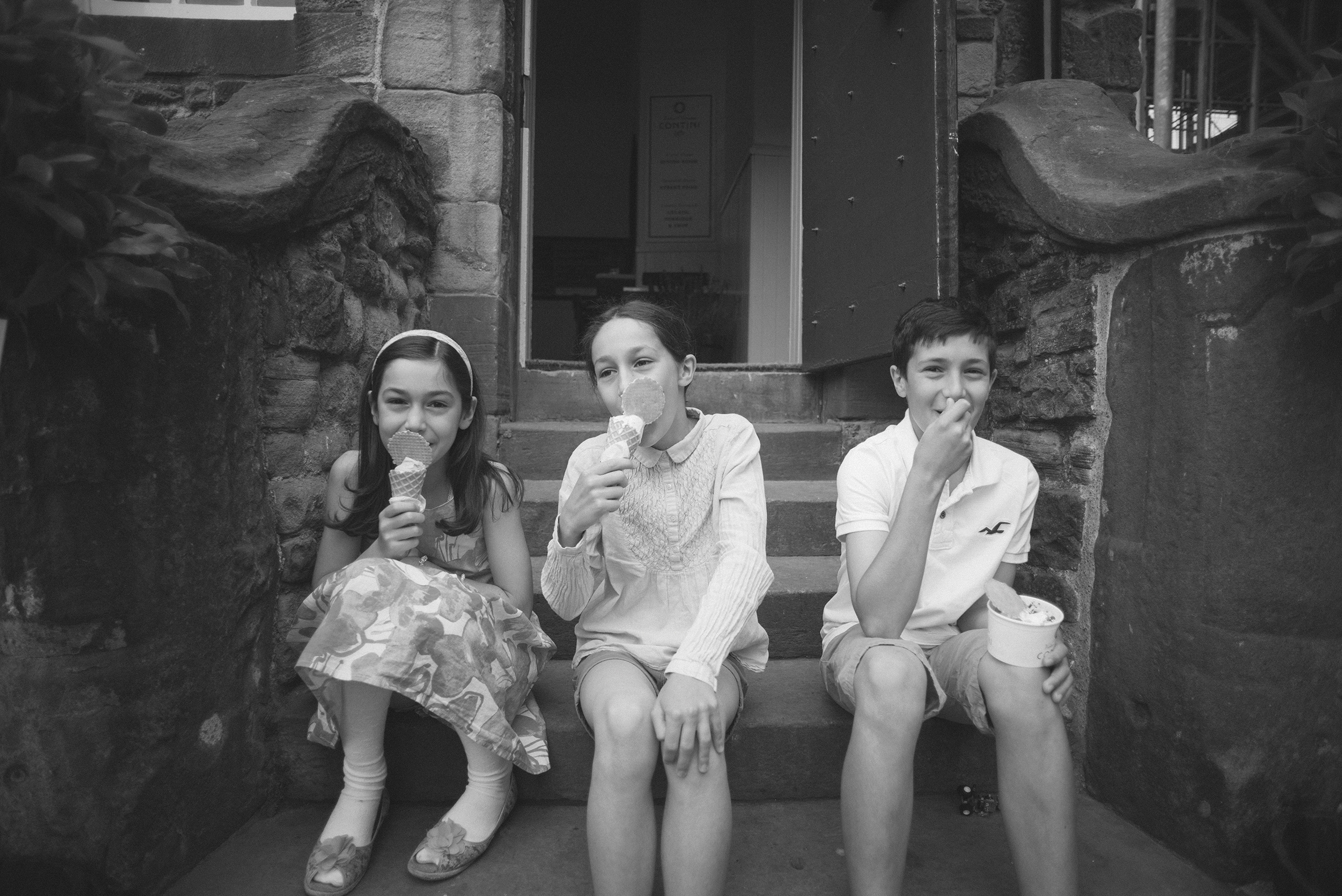
I’ve spared you a photo of our wedding but in 1994 Victor and I married. My happy day. Now I’m the cook. Three children later and I think Orlando my son looks like he could be breaking the pattern as he’s the cook and Carla’s the baker. Arianna the baby, hardly a bay at 11 but she’s most definitely the banker. If you ever need a loan she’s the one to go to.
Centotre, now Contini George St, The Scottish Cafe at the Scottish National Gallery and now Cannonball Restaurant & Bar in partnership with the Royal Edinburgh Tattoo. We’ve come a long way from that tiny village in the mountains in Lazio.
Today
Now are we Italian or are we Scottish. In 1919 our family will have lived here for 100 years. I think that might just about make us Scots.
There are now 162,000 Italian born residents in UK (my mother contributed significantly to this. They should have bought a TV quicker!)
What have the Italians brought to UK:
Lets leave the Romans out of this (concrete, straight roads, food stalls, apples, pears, trademarks, sanitation, plumbing, calendar, bureaucracy)
The Italian Scots have most definitely brought food. They brought The CAFE, there wasn’t a village up and down the country that didn’t have a cafe selling fish and chips, ice cream. We’ve brought the cappuccino and carbonara (although it’s only recently that we’ve told you that it has eggs and no cream), Nicola Benedetti, Lena Zavaroni, Peter Capaldi, Eduardo Paolozzi. I think it’s been a good journey and one all our grandparents are glad we made.
Contini Family
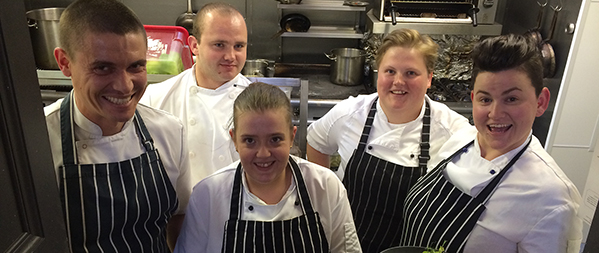

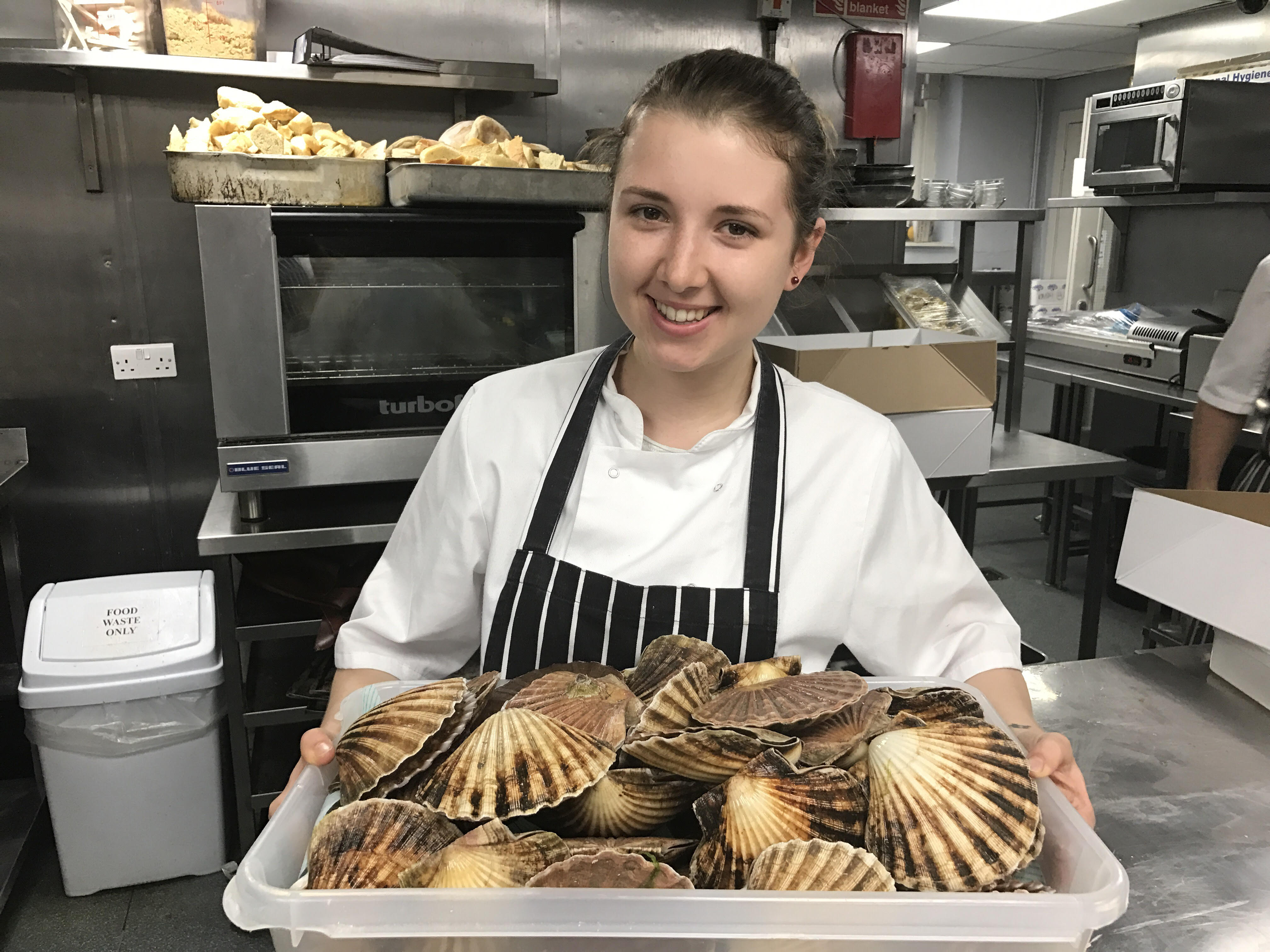
We employ about 120 – 130 team. We represent over 13 countries at the last count. Poland, Italy, Ireland, Hungary, Sweden, Malta, France, Lithuania, China, Croatia, Slovakia, Slovenia, Spain. Yesterday I found out we now have a lovely gentleman from Iran, a Curd who is studying Philosophy in Aberdeen and working with us to support his learning. So we’re now up to at least 14 countries.
Over 80% of our workforce was born outside the UK.
All these cultures make us a better business. Make our food taste better and make our customers happier.
What are we eating in Scotland today:
Pizza, pasta for sure but we’ve also got delicious pad thai curries, nan breads, lassi, babaganuch, tzatziki, we’re drinking amazing wines, gins and so much more.
Italy in the big cities you will find food to be international but regionally it’s holding on to its culture. There are 20 regions which all have unique culinary specialties. In the cities today compared to 20 or 30 year ago you’ll be able to taste a more uniformed Italian cuisine in that you will be able to get Mozzarella di Bufala in Milano. When I was first married this was almost impossible unless you were visiting one of the cities top delicatessens and paying an exuberant amount for it.
But in the UK our food is far more cosmopolitan thanks to our immigrants who have shared their food and their culture. We really are very lucky.
Tomorrow?
The question for this blog is if my family hadn’t traveled here 100 years ago what would they do today:
Would they want to leave Italy?
Would my family want to come to Scotland?
Would they be allowed to come?
Here are a few statistics that you might find interesting.
ITALY vs UK
Population 60,796,000 vs 65,650,000
Average wage Euro 25k vs £30K man £25k woman
Unemployment rate 11.1% vs 4.5%
Youth unemployment rate 37% vs 12.5%
Meat consumption 90.7 kg per year vs 84.2 kg per year
(1900 15kg per year in Italy 35 kg in UK )
Life expectancy man 80.2 woman 84.9 vs man 79.2 woman 82
Obesity 40% vs 60%
Children Obesity 35% vs 22%
Diabetes 5.5% of adults vs 9% of adults
Heart Disease 3.9% vs almost 20%
How much do we spend on food 8.9% vs 14.4%
Census 92% Italian vs 18.77% British
(rest Romania, Albanian, Ukraine, North Africa)
51.41% English
5.93% Scottish
3.26% Welsh
We thank our grandparents every day that they came to Scotland. They made a very good choice.
The next question is – do we need more migrants? – some may be Italian, some may be Swedish, but we need them ……..

Our universities think so – skilled minds to continue vital research and development
Our hospitals and care homes think so – skilled nurses and doctors and cares for our ageing community
Our agricultural community think so – seasonal works urgently needed
Our hospitality sector thinks so – who wants to be a waitress at the pizzeria or scrub potatoes or clean the toilets?
Our tummies think so – imagine life without a pizza or soused mackerel we’ve been trading and learning recipes for ever……
Our conscious think so Italy is carrying a huge burden of the refugee and migration problem in Europe at the moment – we need to take our share too.
My next question is do we need Europe (never talk politics but I think with Brexit we have to) :
Protected status for our heritage products and our exports – Scotch whisky as one example needs Europe
Environment and Animal Welfare for the food industry – our health and wellbeing needs Europe (can you imagine hormone injected beef entering our food chain)
Our food systems and regulation need them – even with all the bureaucracy we still had Horsegate, can you imagine chlorinated chicken gate!
If you’ve read Jay Rayner’s article on his requested meeting with Michael Gove – we need to feed our nation or we won’t have a nation – that’s what happened in Italy – that’s why we left – the risk of no food for our family was too great and that’s why they came to Scotland.
Air miles and productivity – do we really want to be buying food from around the world when the majority of what we need is grown by our neighbours in Europe just across the water?
To avoid America First as Richard Lochhead said in a lovely piece in the Herald last week we need Europe
For long term peace – the world’s needs Europe!
Immigrants make a net contribution to GDP of over £7 billion per year. Without it Public sector will grind to a halt by 2060.
Long live the immigrants! Long live us all.
Carina Contini










